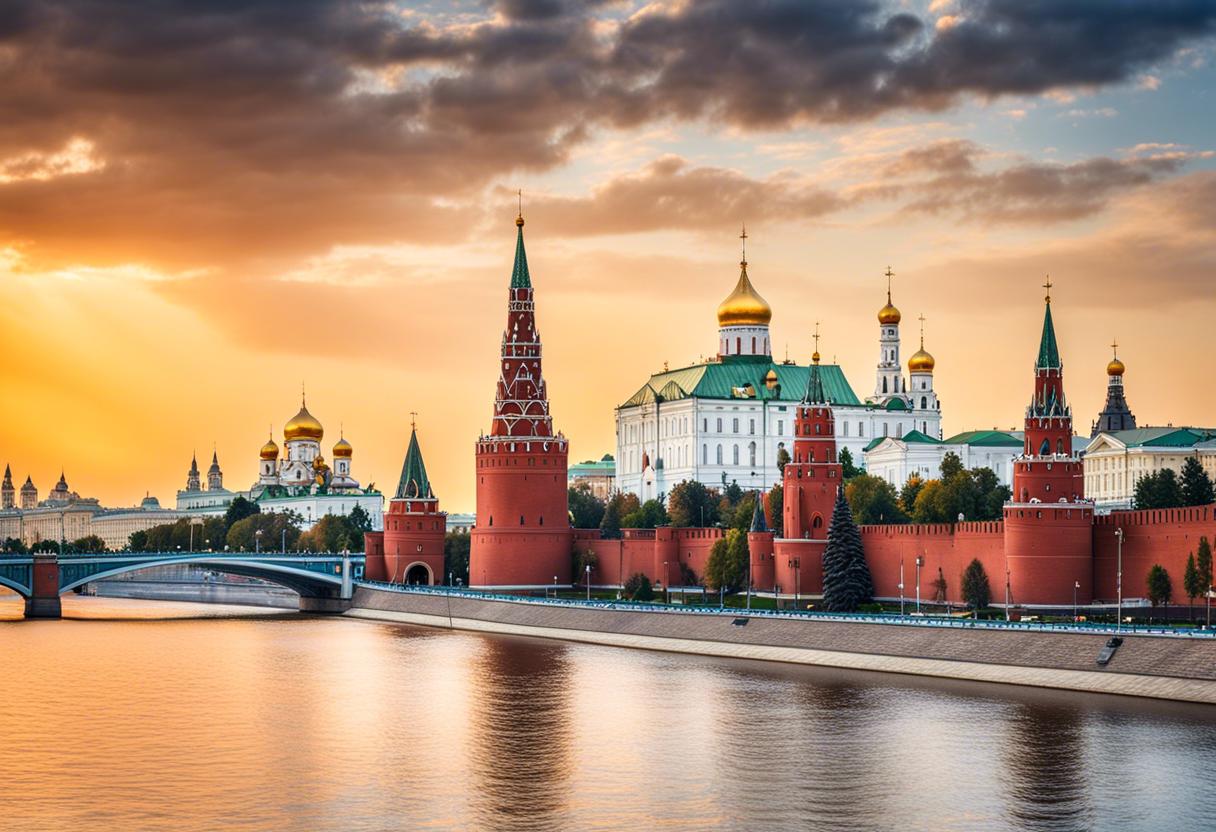The Central Election Commission of Russia has officially announced that President Vladimir Putin has secured victory yet again, marking his fifth term. This time, he has accomplished it with a record-breaking vote count. This news came in on Monday after Putin led an unprecedented clampdown on opposition and freedom of speech, the harshest since the era of the Soviet Union.
Only three nominal candidates were allowed to stand against him, with none opposing his war strategies on Ukraine, as he strived for another six years in power. Putin lauded the preliminary results as evident of the “trust” and “hope” the nation has in him, even though critics perceive it as another sign of the predetermined election outcome.
In a post-poll meeting with his campaign staff, Putin emphasised that despite numerous unresolved issues, unity and staunch determination were their strengths that kept fear and demoralisation at bay. He stressed that they have successfully thwarted such attempts in the past and they would continue to do so in the future as well.
Putin has been leading Russia either as the president or the prime minister since December 1999. His tenure is characterised by international military incursions and an escalating contempt for dissent. As per the Central Election Commission, Putin secured about 87.29 per cent of the vote with nearly all precincts counted.
Ella Pamfilova, the Chief of Central Election Commission, revealed that Putin received close to 76 million votes which is his highest vote count to date. The election results were promptly greeted by leaders like North Korean leader Kim Jong-un, and the presidents of Honduras, Nicaragua, and Venezuela. Congratulatory messages also poured in from the leaders of former Soviet Central Asian nations, Tajikistan and Uzbekistan. Meanwhile, Western nations dismissed the election result as a farce.
The British Foreign Secretary, David Cameron took to X, earlier known as Twitter, criticising Russia’s election process and stating that it doesn’t resemble free and fair elections. Alexei Navalny’s allies urged voters dissatisfied with Putin or his war strategies to cast their votes at noon on Sunday. This led to an increased queue at several polling booth locations within Russia and its global embassies. Among the voters was Yulia Navalnaya, Navalny’s widow, who patiently waited for over five hours to cast her vote at the Russian Embassy in Berlin.
In her ballot, she inscribed her late husband’s name, she informed the press. When asked if she had any words for Putin, Mrs Navalnaya urged reporters to halt their requests for any message intended for the Russian leader. She emphasised that there can be absolutely no interactions or negotiations with Mr Putin, referring to him as a criminal and killer. Mr Putin, however, dismissed the apparent protest’s impact.
Post the voting interval, he expressed during a media discussion: “Invitations were issued to vote at midday as a sign of dissent. If voting invitations were indeed extended, then that is something I commend.” Notably, during this press conference, Mr Putin acknowledged Mr Navalnaya for the very first time.
Many Russians waiting to exercise their voting rights in Moscow and St Petersburg claimed participation in the protest, but it was impossible to verify if all those queued held the same intention. One elector in Moscow, known only as ‘Vadim’, expressed his hope for better times, but feared this was unlikely.
Moreover, due to safety fears, many like him refrained from revealing their full identity. Concurrently, a multitude of Mr Navalnaya’s advocates congregated at his burial site in Moscow, with some bringing ballots bearing his name.
The largest independent news agency in Russia, Meduza, exhibited images of ballots fetched from their audience, one bearing the word “killer” and another expressing “The Hague awaits you”. The latter is a reference to an arrest warrant issued against Mr Putin by the International Criminal Court, on allegations of war crimes. A handful of people reported to AP their satisfaction in voting for Mr Putin, a not so surprising revelation considering the incessant praise the leader receives on national television and the risk involved in expressing any contrary views.
Dmitry Sergienko, a voter from Moscow, expressed his contentment with the current situation and his wish for it to be perpetuated. The voting spanned three days, held at various polling locations across the country, including Ukraine’s illegitimately seized regions as well as digitally. There were several arrests made, including in Moscow and St Petersburg, as people attempted to kindle fires or detonate explosives at voting locales, while some were apprehended for dropping green antiseptic or ink into ballot boxes.
Stanislav Andreychuk, the joint head of the impartial election observer group, Golos, reported that Russian voters were being scrutinized upon entering polling venues, there were efforts made to examine completed voting slips prior to them being submitted and there was a lone report indicating that the law enforcement officials asked for an election box to be unlocked to retrieve a voting slip, according to the Associated Press.

